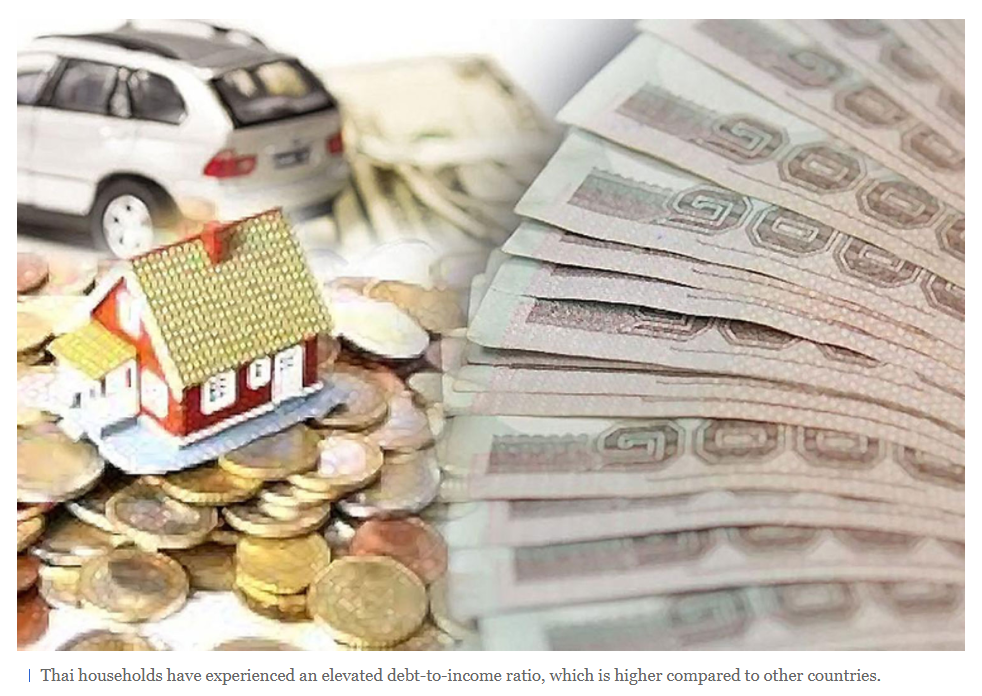Thailand: Financial system increasingly vulnerable
The Thai financial system has become more vulnerable due to negative shocks from the recent Covid-19 outbreak, says the Bank of Thailand (BoT).
The financial situation of Thai households has become more fragile as reflected in the elevated debt-to-income ratio which is higher compared to other countries.
The majority of household debt comprises of personal consumption loans with high-interest rates, resulting in a high monthly debt service burden, according to edited minutes of the central bank’s Monetary Policy Committee (MPC) released on Wednesday.
Meanwhile, household savings as a share of income has declined, especially among self-employed workers and employees in the service sector and this could reduce a household’s ability to cover expenses.
In the fourth quarter of 2020, Thailand’s household debt was 14 trillion baht and this represented 89.3% of the country’s gross domestic product (GDP). In Thailand, household debt is mainly comprised of personal consumption loans and mortgage loans.
However, personal consumption loans carry a significant interest rate, resulting in a high monthly debt burden.
The MPC is of the belief that the BoT should assist financial institutions to expedite additional assistance to help borrowers. In the short term, measures to help reduce the debt burden, generate income, and reduce expenses to enhance liquidity for affected households should be expedited.
For example, measures should expand options for debt restructuring tailored to the debt servicing ability of borrowers and increase channels for credit assistance through specialised financial institutions (SFIs) and key non-banks in the retail loan market.
Looking ahead, the Thai economy faces risks from the spread of Covid-19 which may affect income and the already fragile financial positions of borrowers and this would increase the likelihood of debt that could lead to cross defaults if not properly assisted.
Meanwhile, the impact of the aforementioned risks on overall financial stability would be limited. However, there must be monitoring of the quality of household debt as it could further deteriorate as well as the slowdown in credit extended by financial institutions amid high credit risk ahead, the minutes said.
Last week, the BoT implemented the third phase of debt relief measures for retail borrowers on a case-by-case basis. The measures will help ease the financial burden of individual borrowers after the third wave emerged in April.
Source: https://www.bangkokpost.com/business/2118627/financial-system-increasingly-vulnerable


 English
English




